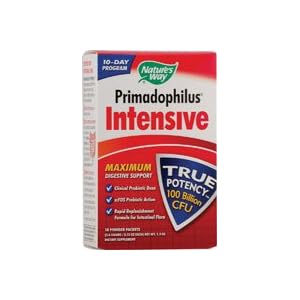According to an article in the New York Times, “Antibiotic abuse may also be contributing to the increasing incidence of obesity, as well as allergies, inflammatory bowel disease, asthma and gastroesophageal reflux.”
The article examine numerous studies from around the world that have been showing the long-term side effects that antibiotics have on our bodies. Ulcer patients treated with antibiotics for H. pylori, for example, tend to overeat afterward. “After a meal, levels of ghrelin, a hunger hormone secreted in the stomach, are supposed to fall. But in subjects without H. pylori, the amount of ghrelin in the bloodstream held steady, in essence telling the brain to keep eating.”
Other researchers out of Harvard and Washington University have found, “that the ratios of various bacteria in the guts of obese mice and obese humans were significantly different from those of lean controls, suggesting that altering the stomach’s microbial balance with antibiotics might put patients at risk for gaining weight.”
Beyond the obesity link, other effects of the overuse of antibiotics can be seen elsewhere in our health.
“An epidemiologist at New York University, Yu Chen, has found an inverse correlation between H. pylori infection and childhood-onset asthma, hay fever and skin allergies in 7,600 participants in the National Health and Nutrition Survey.”
In effect, the research is showing that we need a bacterial balance inside of us for our bodies to stay healthy and functioning. Every time we take a round of antibiotics, it’s a good idea to replenish the bugs inside your gut before their absence leads to lower oral tolerance levels, hypersensitivity reactions, and inflammatory conditions like those mentioned above. If the bugs aren’t there, complete digestion of your food, and subsequent assimilation of the nutrients, is hindered. Now we’re looking at a staging ground for GERD, IBS, and a host of other chronic ailments as well as auto-immune disorders.
the bugs aren’t there, complete digestion of your food, and subsequent assimilation of the nutrients, is hindered. Now we’re looking at a staging ground for GERD, IBS, and a host of other chronic ailments as well as auto-immune disorders.
How can you help yourself recover from antibiotic side effects like these? Take probiotics in between doses and do an intensive round right after you finish the course of medicine. One that I like to use after antibiotics is Primadophilus Intensive 10-Day Therapy.
One of my naturopathic clients had suffered from terrible constipation for a long time. She had also been treated with antibiotics for multiple infections over the years. I started her off with a round of Primadophilus Intensive and she continues her treatment by drinking Good Belly daily. (I told you I loved this stuff!) Here is what she says:
“Elizabeth Yarnell was the link that I was missing in my personal health care. After just a few weeks of her guidance and suggestions, I was regular for the first time – ever! It’s amazing how being regular can make such a difference in your face (my adult acne is almost gone), your energy level, and just your overall mood. Plus…having been diagnosed with MS since April 2006, the diet recommendations that Elizabeth made have made a tremendous different in my MS – eating the right foods and not eating the wrong foods can really make you feel a ton better. I would and have recommended Elizabeth to many of my friends and family and also gave her name to my neurologist who was thrilled to have a professional nutritionalist that she can recommend to her patients.”
~ Deb Warren, Aurora, CO

